Republic of Yari
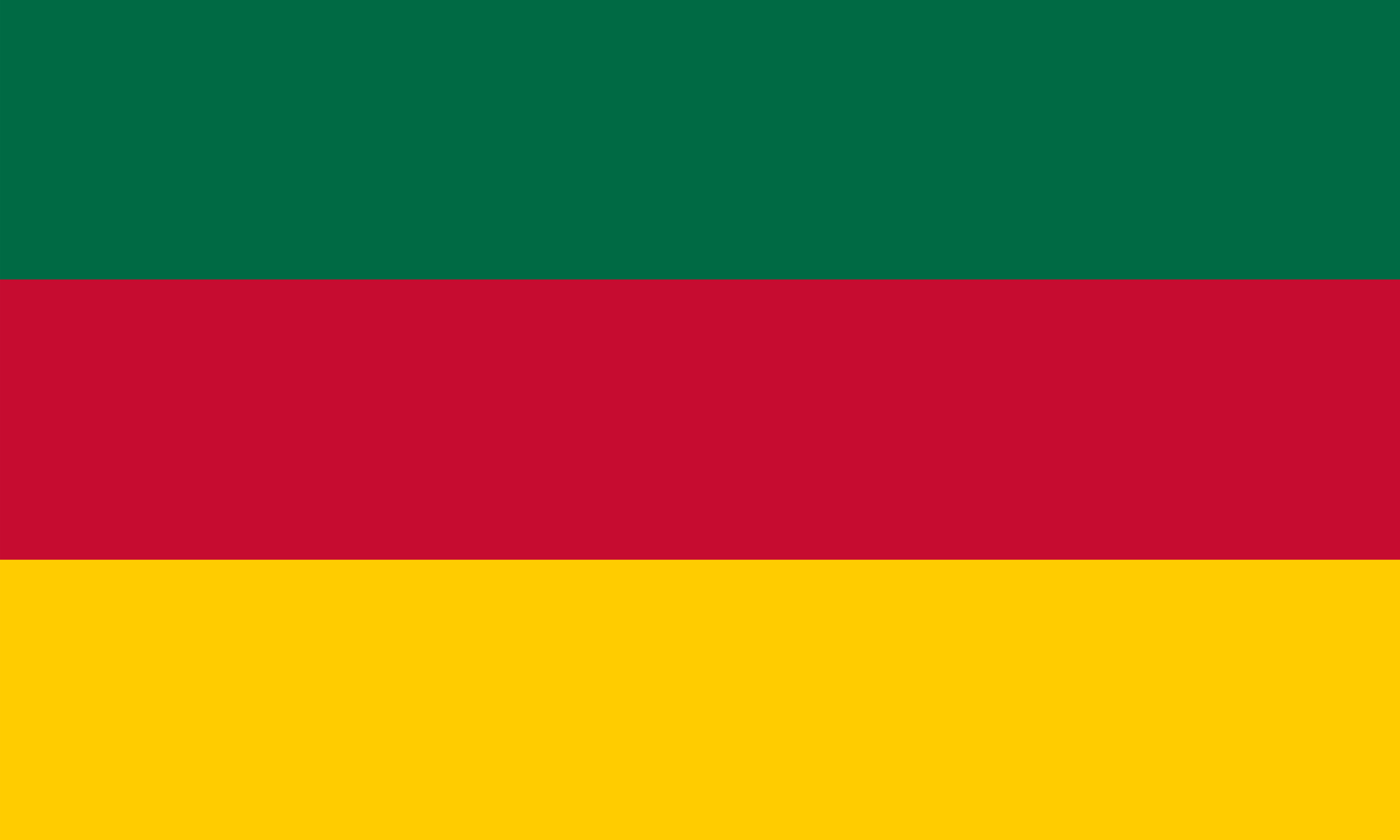
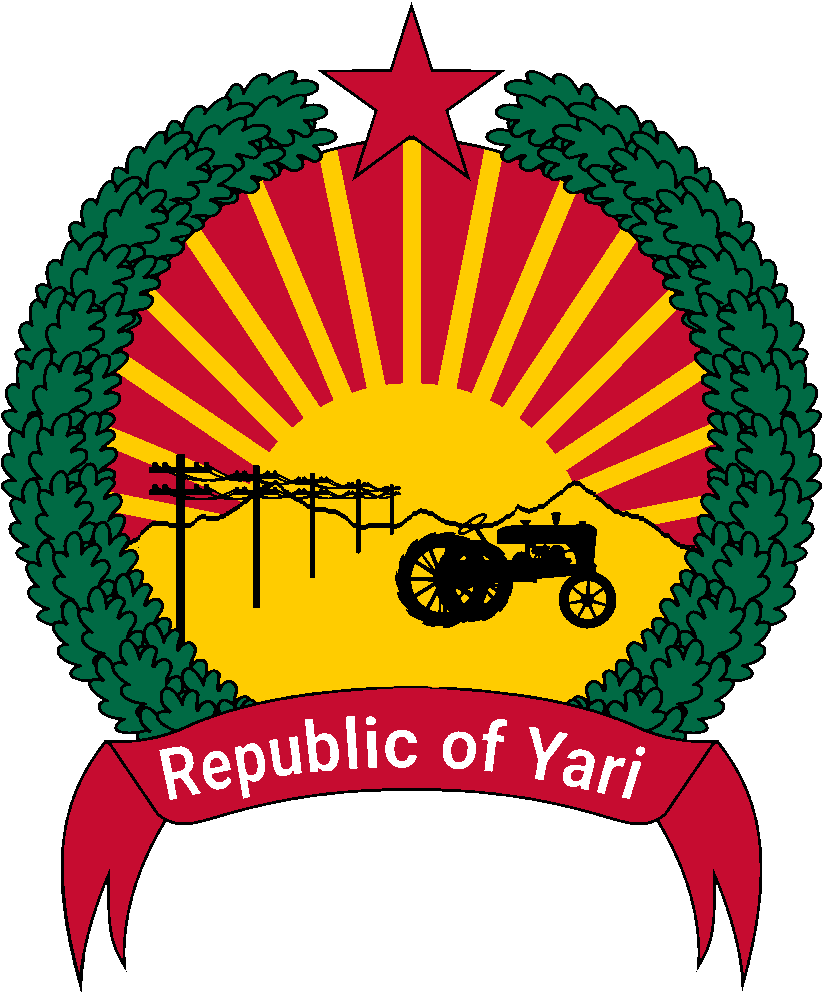
| Capital: | Edelwen |
| Official language: | Mercish |
| Ethnic groups: | Yari (58%) Haftani (21%) Waraniyan (18%) Other (3%) |
| Religions: | Messianity (27%) Shafar(11%) Hasdi (7%) Animism (6%) No religion (49%) |
| Population: | 23 Million |
| Government: | Non-partisan Unitary Presidential Socialist Republic |
| President: | Rodion Chereff |
| Deputy President: | Azalia Diri |
| GDP: | $14 Billion (1990) |
| Currency: | Yari shilling |
Yari (Republic of Yari) is a country located in North-Eastern Afar inhabitated by around 23 million people (1990). Yari's capital is Edelwen and the country is divided into 10 subdivisions called districts. Other major cities: Mashtar, Bayar, Cormon, Willis Bay, Luend, Nampal, Shafar, Bluecove and Fetherden. Country's economy is mainly dominated by tourism, agriculture and mining.
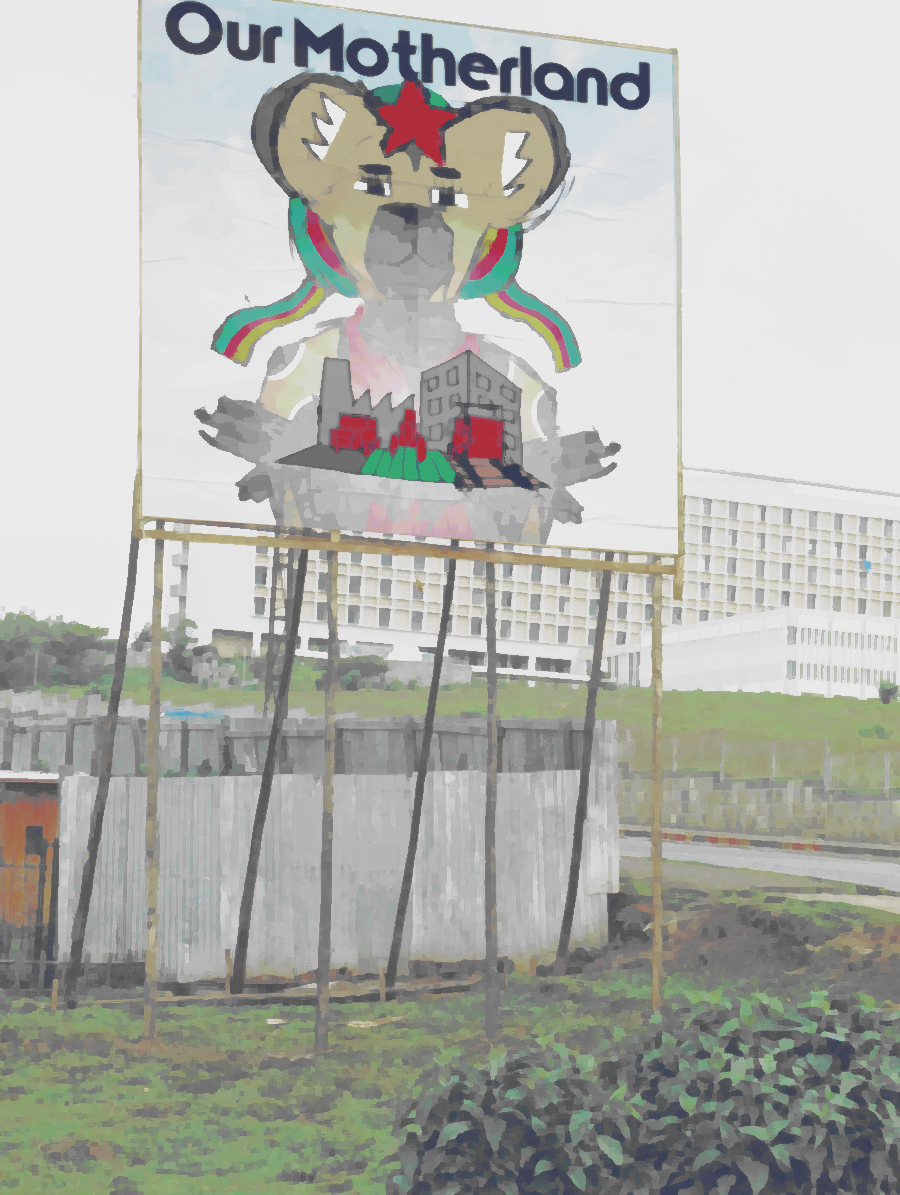 Edelwen (1984)
Edelwen (1984)
History
Origins
Yari and its name were already known in ancient times. The term "Yari" referred to the land between the River Mel and the Waraniyan Mountain Range. The most notable figure in Yari history from that time is King Dahur I, under whose reign (176-132 BOE) Yari pushed its borders past the eastern mountains and conquered what is now known as Waraniya. However, this golden age did not last long, and the Yari Empire eventually collapsed in 54 BOE due to outside pressure and invasions, followed by the subsequent deterioration of the nation throughout the following centuries.
Yari then faced subjugation under various foreign powers: first under Shafar rule after an invasion in 882 OE, then under the Western Mel clans after their conquest in the 10th century, until Yari was eventually colonized by Mercland in 1501 OE. Subsequently, Yari culture and native beliefs slowly vanished under foreign influences. This process was further advanced by Mercish colonization, during which Yari faced harsh oppression and genocide.
Modern history (1960-1979)
Yari eventually gained independence from Mercland on the 30th of October, 1960, and the monarchy under the Fahurite dynasty was restored with Fahur IV placed on the throne. The period of his reign, called the Fahur Decades, is marked by revived Yari cultural life, widespread corruption, underdevelopment, and poverty caused by the king's lavish lifestyle. Fahur was also seen as nothing more than a puppet installed by Mercland to control the country and allow foreign conglomerates to exploit the nation's resources. Some social progress was achieved during his reign, including the establishment of the first Yari university and the creation of a constitution; however, the population's discontent with Fahur's governance grew over time.
Anti-monarchist sentiments only grew stronger after the First Yari-Nebanese War of 1978, in which Yari suffered a huge defeat due to the king's overreliance on Western material support. Yari was eventually forced to cede the Mel-Hafar strip to the Eikai-backed regime of Nebay. Because of this defeat, Fahur was now seen as incompetent not only by civilians but also by the military, and internal opposition quickly arose in the government.
After the "December Incident," in which Yari police fired at peaceful protesters, a faction within the military used this opportunity and launched a successful coup that overthrew Fahur's government on the 15th of December, 1979, in an event now known as the Young Officers' Coup. A wave of protests in support of the coup washed over the country, and the Revolutionary Command launched a widespread "de-Fahurization" campaign over the following months.
Modern History (1980-Present)
Rodion Cheref, a colonel who studied in Aurora, quickly rose to power within the Revolutionary Command and was eventually elected as the first president of Yari, first within the command, and then by popular vote. Cheref quickly sidelined his opposition and aligned Yari with the East, establishing a socialist type of governance by nationalizing all foreign assets within the country and introducing worker self-management, along with greatly expanding social liberties and curbing all dissent. The new government swore to establish Yari as an independent state; nevertheless, that did not stop them from receiving political and economic aid from the SUA.
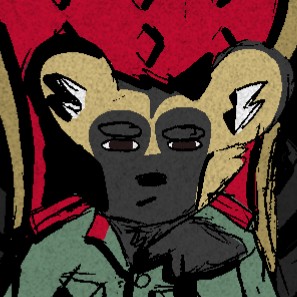
President Rodion Cheref
The coup coincided with the discovery of substantial oil reserves in the northern deserts of Yari. The new government quickly drafted the first five-year plan, under which Yari took foreign loans to buy mining equipment before establishing its oil extraction industry. On top of that, Cheref also introduced a land reform that abolished the semi-feudal agricultural system and gave farmers direct ownership of the land they worked on. Yari's tourism potential was also finally recognized with the construction of a tourism industry, as the Nampal Sand Castle and the Edelwen Lazurite Palace were officially added to the UWO's Protected World Heritage List.
Literacy rates rose from 20% in 1980 to 90% in 1990, and Cheref's government oversaw the construction of various public facilities, such as the Mashtar Dam, and prefab housing. Despite everything, the cultural life of Yari continued to develop, with events such as the International Week for Peace in 1985 organized in the country, which only fueled tourism even more.
Peace did not last long, however. Nebay, angered by the flooding of farmlands caused by the construction of the Mashtar Dam, continued its aggressive politics against Yari, including the funding of anti-socialist groups within the country, which led to the Second Yari-Nebanese War. The conflict began after the Haftani Independence Front, backed by Nebay and Eikai, launched an uprising in the Mashtar region, and Nebay invaded under the pretext of liberating the aforementioned region in 1991. Yari quickly repelled the Nebanese invasion and crushed the HIF with military support from Aurora and modern military techniques that overpowered the antiquated Nebanese tactics.
As of now, Yari is focused on repaying previously taken loans, increasing the standard of living in the country, and rebuilding regions that suffered the most due to the war.
Geography
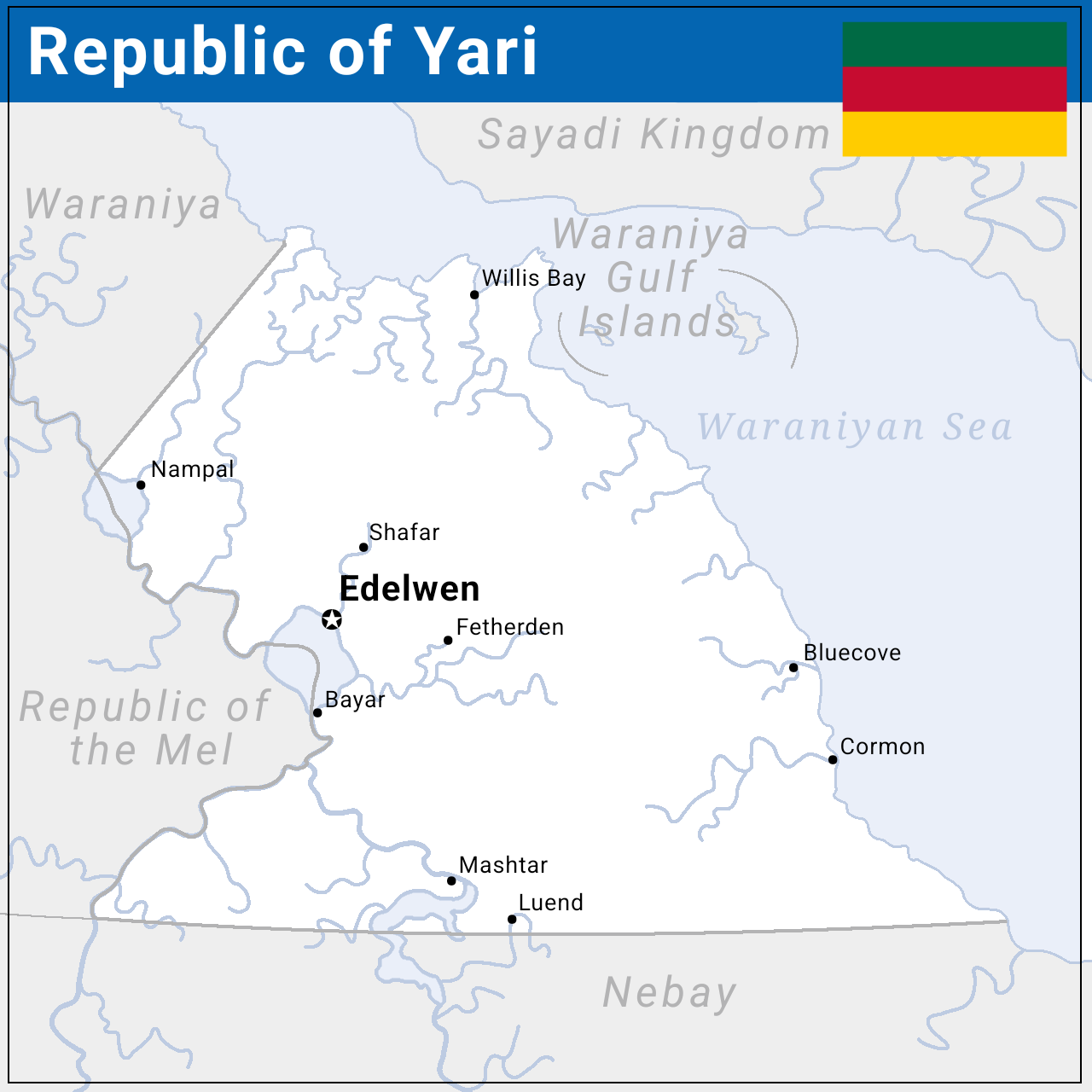
Yari is dominated by tropical forests, with substantial plains in the southeast and deserts in the northeast, with the Waraniya mountains passing through the country. Yari's climate ranges from subtropical in the north to tropical in the south. The biggest river in Yari is the Mel, which also forms the border between Yari and the Republic of Mel. The three largest lakes in Yari are Wen, Wetel, and the Mashtar Reservoir.
Economy
Yari's economy is a mix of a commanded economy with worker self-management, where medium to large businesses are nationalized, while private enterprise exists in the form of agriculture and small businesses. Yari is dominated mainly by mining, agriculture, and tourism. Its economic growth is estimated to be around 6-8%, and its debt-to-GDP ratio is a moderate 40%.
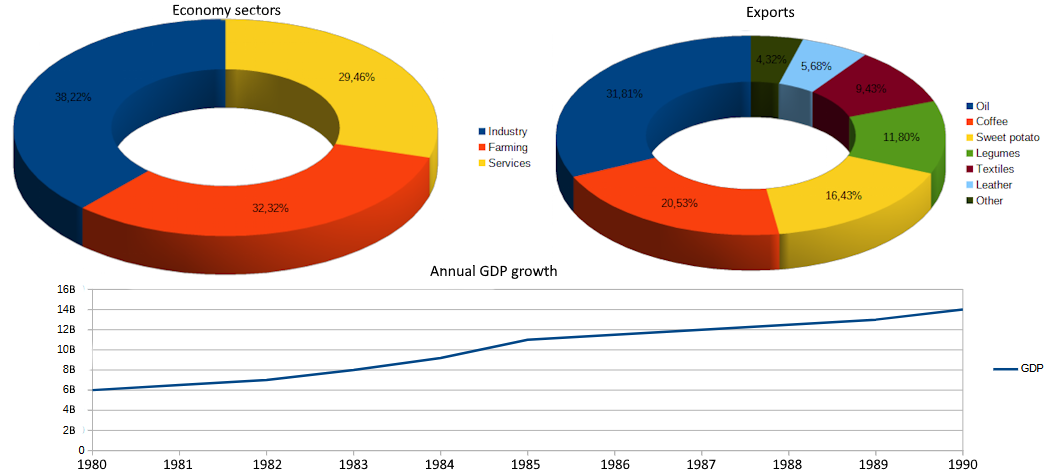
Culture
Yari culture is the product of its long history—as a subject of many foreign nations—and its geography, being isolated by the Waraniyan mountains in the east and the Mel River in the west. Yari is most heavily influenced by Waraniyan culture, which is reflected in its music and architecture. Yari music is usually pentatonic and features an oud. The architecture, however, heavily depends on the period, with early structures being monumental and built from mud brick, while later the focus shifted from monumentality to geometry and symmetry, heavily influenced by Waraniyan culture.
Something uniquely Yari is its cuisine, which is beloved not only in its homeland but also around the world—a prime example being the "Khaaj" dish, consisting of flatbread, lentils, and meat (very often alongside local spices). Yari is also known for its raisins and coffee, which are considered delicacies by its people.
Many years of colonization have reshaped Yari culture, with its language being almost completely forgotten as a result of Mercish rule, although some words of Yari origin still survive in slang and some dialects. The Yari government and various international organizations work to preserve and promote what is left of Yari culture for future generations to cherish and honor.
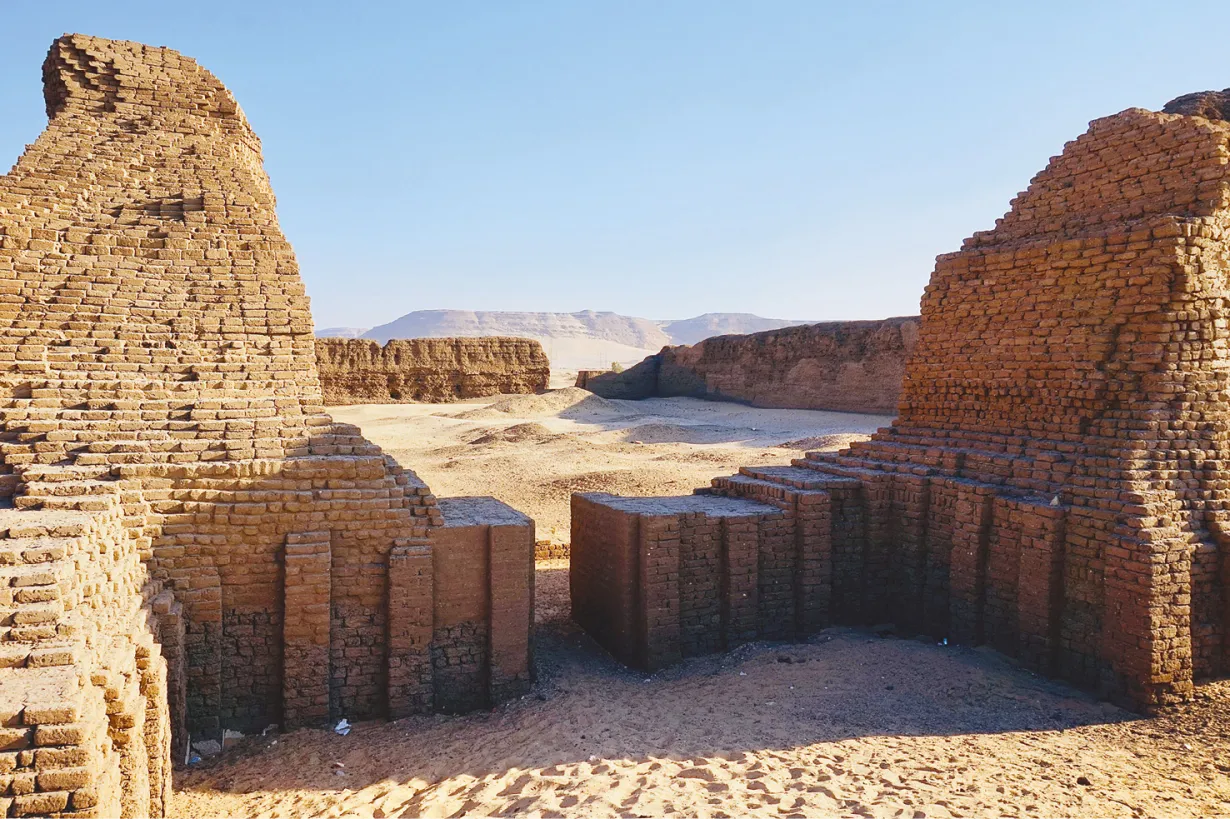 Nampal Sand Castle ruins
Nampal Sand Castle ruins
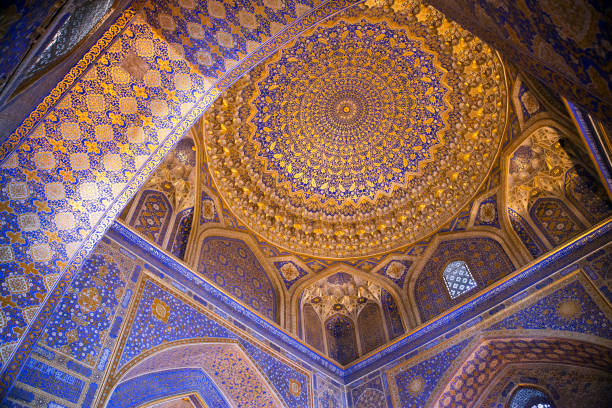 Edelwen Lazurite Palace
Edelwen Lazurite Palace